The construction and landscaping industries thrive on efficiency, adaptability, and reliability. Among the pivotal equipment that aid in achieving these goals is the 3-yard dump trailer. Understanding what a 3-yard dump trailer is, its capabilities, and its ideal applications can optimize workflow and enhance productivity.
What Defines a 3-Yard Dump Trailer?
A 3-yard dump trailer is a specialized vehicle designed for transporting loose materials such as gravel, dirt, sand, and debris. Its name is derived from its capacity, which is about 3 cubic yards—this measurement indicates how much material the trailer can hold.
3-yard dump trailers can vary in their construction and features, but they typically include:
- Durable Construction: Most are made from heavy-duty steel or aluminum, providing stability and longevity.
- Hydraulic Lift System: This allows the bed of the trailer to tilt, facilitating quick unloading of materials with ease.
- Versatile Towing Options: Designed to be towed by various vehicles, including trucks and SUVs, making them suitable for diverse user needs.
- Load Capacity: While their cubic yard measurement denotes volume, users should also consider weight limits depending on the material being transported.
Features of a 3-Yard Dump Trailer
The features of 3-yard dump trailers can significantly influence their functionality, performance, and usability:
| Feature | Description |
|---|---|
| Size | Typically between 10-14 feet long, varying based on design. |
| Material | Most trailers are constructed from heavy-duty steel or aluminum. |
| Axles | Usually equipped with tandem axles for improved load distribution. |
| Tires | Durable tires designed to tread well on various terrains. |
| Hydraulic System | Simplifies unloading with a push of a button or lever. |
| Accessibility | Low tailgate height for easier loading and unloading. |
| Safety Features | May include reflectors, safety chains, and load securing points. |
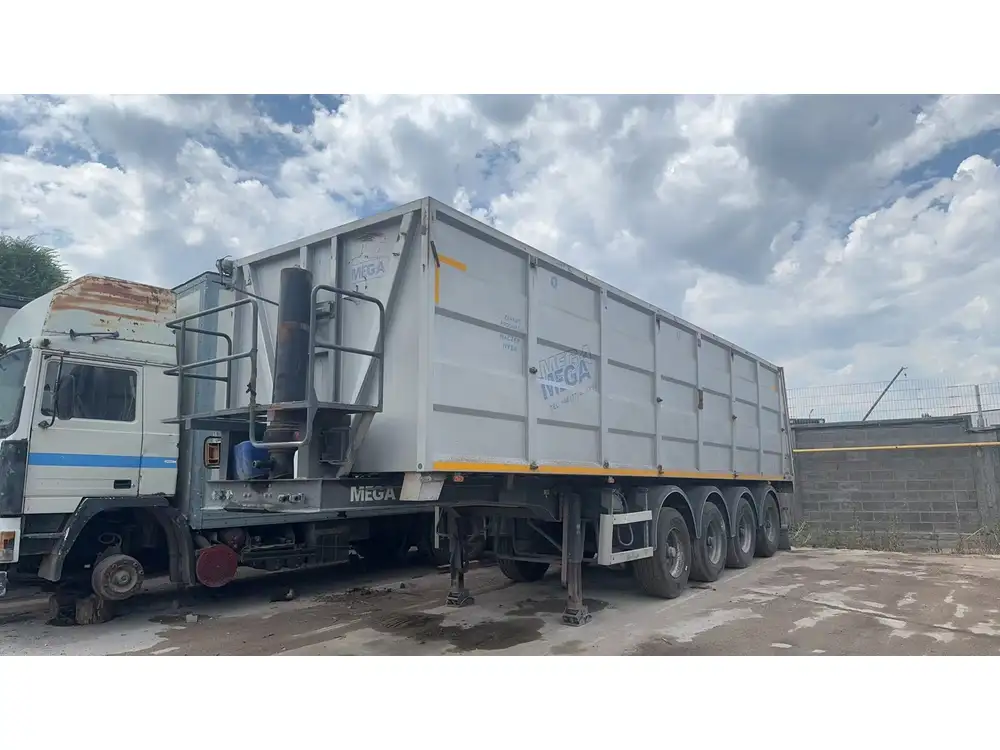
Ideal Applications for a 3-Yard Dump Trailer
The versatility of a 3-yard dump trailer makes it suitable for various applications across different sectors. These trailers can support small to medium-scale projects, including:
1. Landscaping
- Soil Delivery: Transporting topsoil, mulch, or compost for garden projects.
- Debris Removal: Effectively hauling away landscaping waste, such as cut branches and unwanted plant material.
2. Construction
- Material Transport: Delivering gravel, sand, or construction debris to and from job sites.
- Waste Management: Removing scrap materials from construction sites, ensuring cleanliness and compliance.

3. Agricultural Use
- Feed Transport: Convenient for transporting feed, straw, or hay within farms.
- Soil Amendments: Bulk delivery of fertilizers or organic matter, sustaining healthy crop growth.
4. Home Improvement
- Renovation Projects: Ideal for transporting materials like shingles, rock, or tiles during home renovations.
- Cleanup: Facilitating quick removal of debris following home improvement tasks.
Benefits of Using a 3-Yard Dump Trailer
Utilizing a 3-yard dump trailer presents numerous advantages that can significantly enhance operational effectiveness, including:
- Efficiency: Streamlined loading and unloading process minimizes time spent moving materials.
- Cost-Effectiveness: Reduces the need for multiple trips compared to smaller trailers, saving fuel and labor costs.
- Flexibility: Various configurations and hitch options allow compatibility with a range of towing vehicles.
- Ease of Use: Simplified hydraulic systems minimize worker strain and amplify productivity.
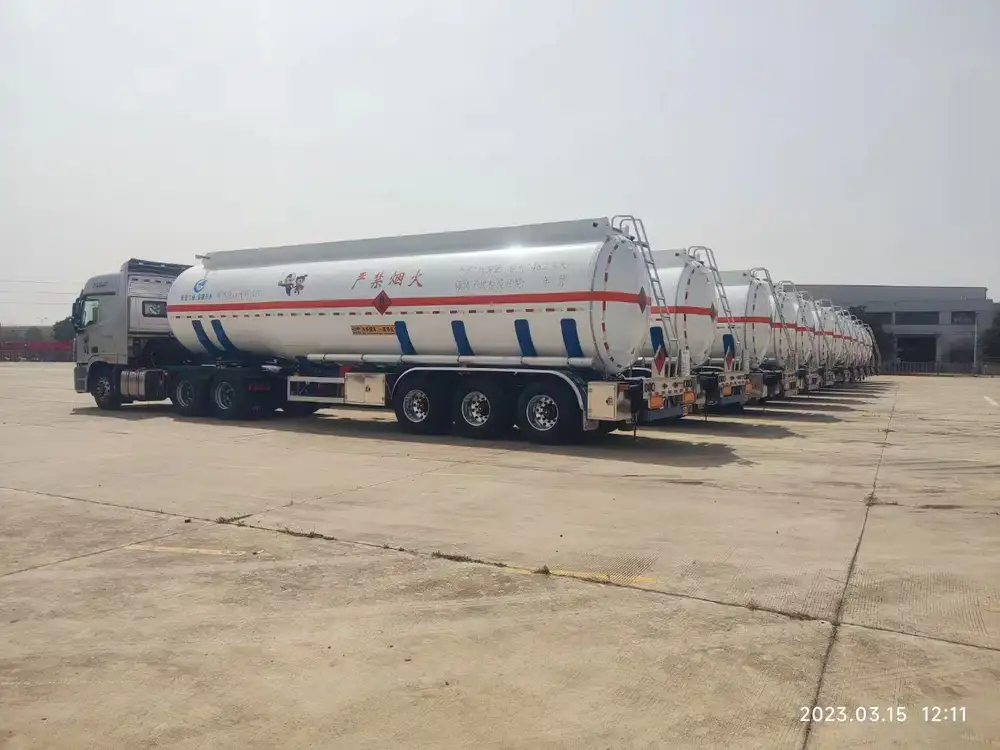
Comparison with Other Sizes of Dump Trailers
When evaluating the 3-yard dump trailer, it is crucial to compare it with other dump trailer sizes. Below is a comparative look at different sizes and their capacities:
| Trailer Size | Cubic Yards | Ideal Use |
|---|---|---|
| 1-Yard | 1 cubic yard | Small residential tasks |
| 3-Yard | 3 cubic yards | Mid-sized landscaping and construction |
| 5-Yard | 5 cubic yards | Larger construction projects |
| 10-Yard | 10 cubic yards | Heavy-duty waste removal and large deliveries |
Considerations Before Buying a 3-Yard Dump Trailer
Investing in a 3-yard dump trailer necessitates careful consideration of several factors to ensure it meets your needs effectively:
1. Towing Capacity
Confirm that your vehicle can safely tow the trailer, considering both the trailer weight and the total load to be transported. The trailer’s Gross Vehicle Weight Rating (GVWR) should fit within your tow vehicle’s specifications.
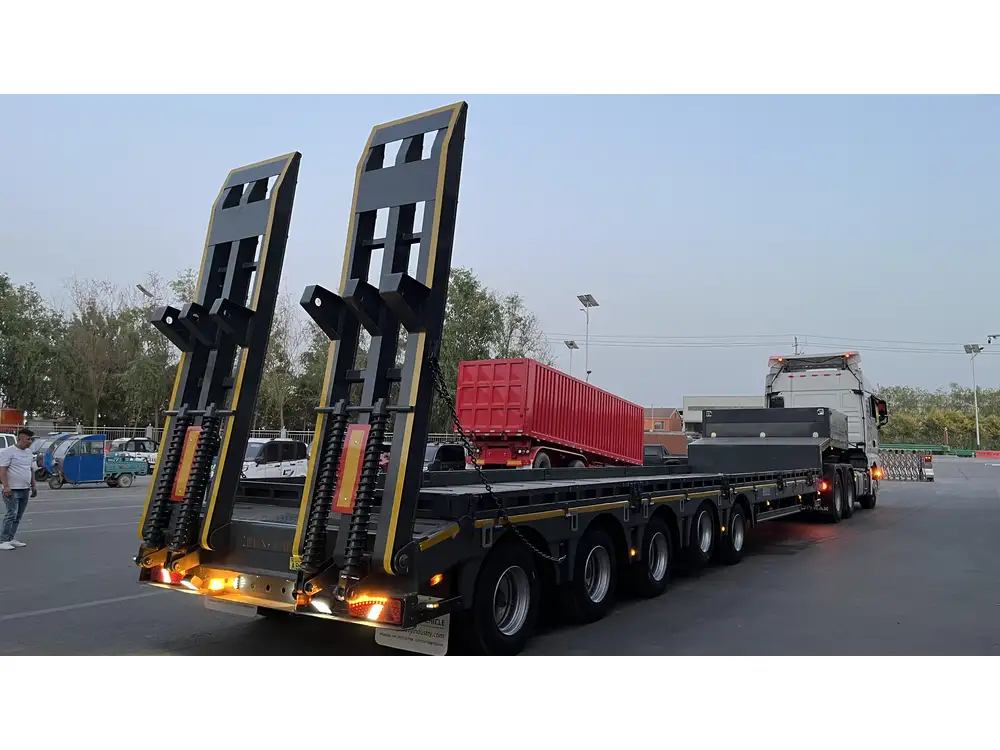
2. Material Type
Consider what types of materials you will be hauling. For instance, heavier materials such as concrete may require a robust trailer with reinforced specifications.
3. Hydraulic System Quality
Evaluate the hydraulic system of the trailer. A reliable system prevents breakdowns and ensures consistent performance during unloading operations.
4. Budget
Assessing the budget is crucial; while investing in a high-quality trailer leads to durability and reduced maintenance, it is also essential to find a balance between price and features.
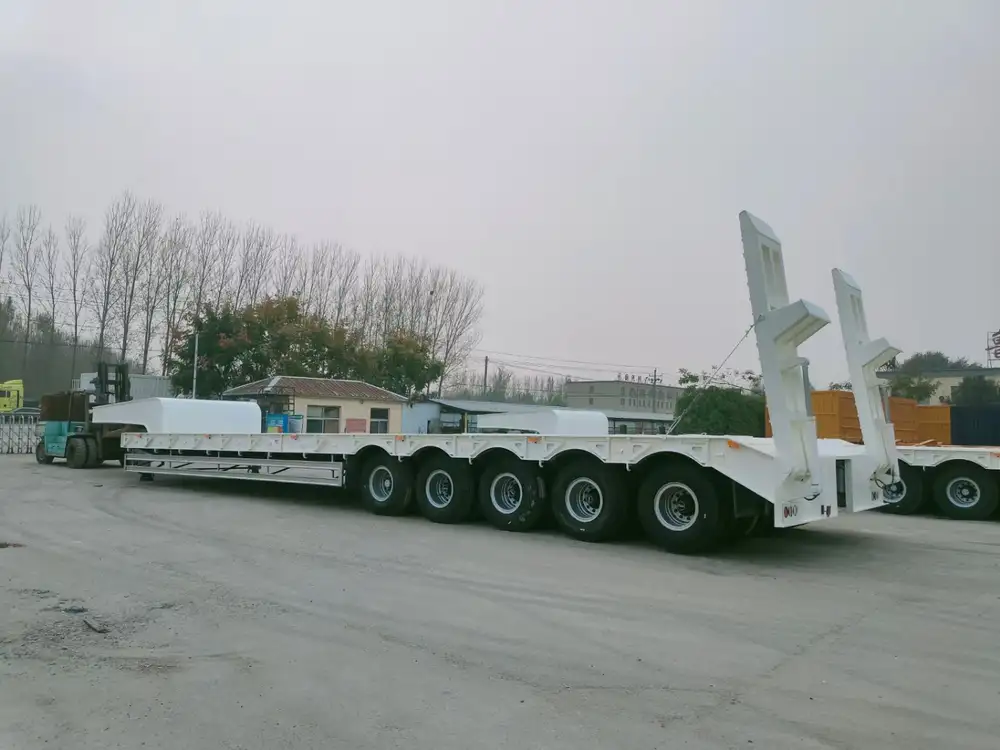
5. Dealer Reputation
Choose a reputable dealer with a solid track record of customer service and support. Reviews, testimonials, and warranty options can provide insight into the dealer’s reliability.
Maintenance Tips for a 3-Yard Dump Trailer
To maximize the lifespan and efficiency of a 3-yard dump trailer, proper maintenance is imperative. Regular check-ups can prevent costly repairs and ensure that the trailer operates optimally. Here are some useful maintenance tips:
Regular Inspection: Schedule periodic inspections to assess the trailer’s structural integrity, focusing on the frame, tires, and hydraulic system.
Tire Care: Maintain proper tire pressure and check for abnormal wear patterns, which can indicate alignment issues or overloading.
Hydraulic System Maintenance: Keep the hydraulic fluid at recommended levels and inspect hoses for leaks or wear.
Cleaning: Clean the trailer after each load to prevent material buildup, which can cause rust and corrosion.
Storage: Store the trailer in a dry, covered area whenever possible to protect it from the elements.
Common Questions About 3-Yard Dump Trailers
To enhance understanding and provide clarity, it’s crucial to address common questions that users might have when considering a 3-yard dump trailer.
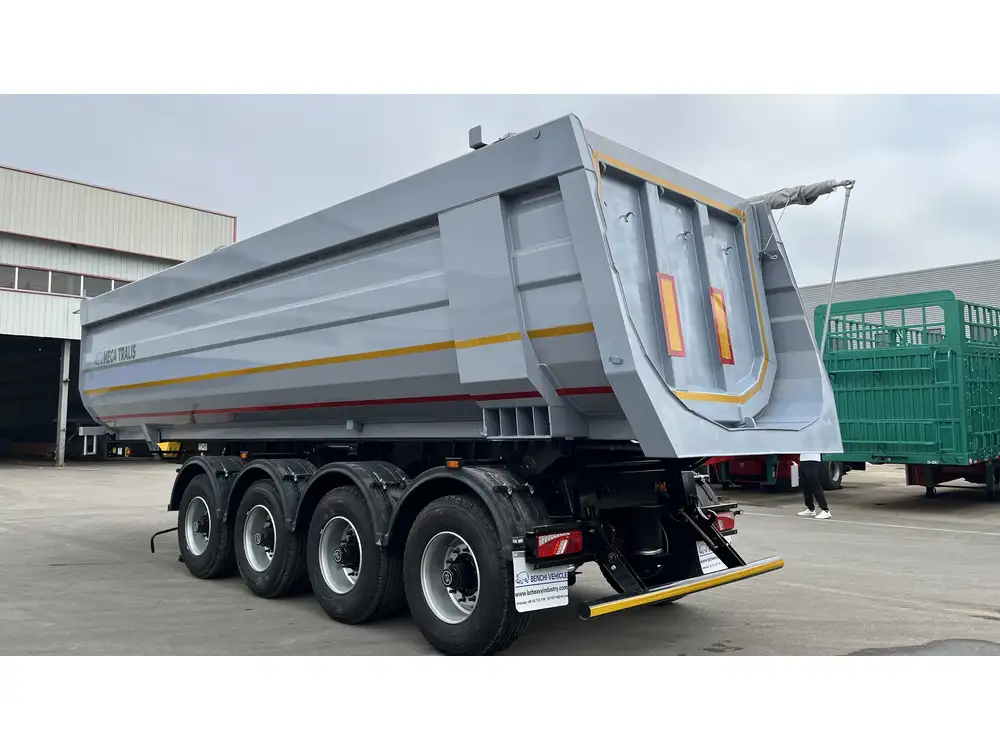
Q1: What materials can I transport with a 3-yard dump trailer?
A 3-yard dump trailer is versatile and can transport various materials such as soil, gravel, sand, debris, mulch, and construction waste. However, it’s essential to adhere to weight limits based on vehicle specifications.
Q2: Can a 3-yard dump trailer handle heavy loads?
While designed for small to medium traffic loads, it is vital to respect the maximum weight capacity as specified by the manufacturer. Always calculate the weight of the materials being transported to avoid overloading.
Q3: Is a 3-yard dump trailer easy to use?
Yes, 3-yard dump trailers are user-friendly, especially when equipped with hydraulic systems that facilitate easy loading and unloading. Proper training on safe usage and best practices can further enhance user experience.
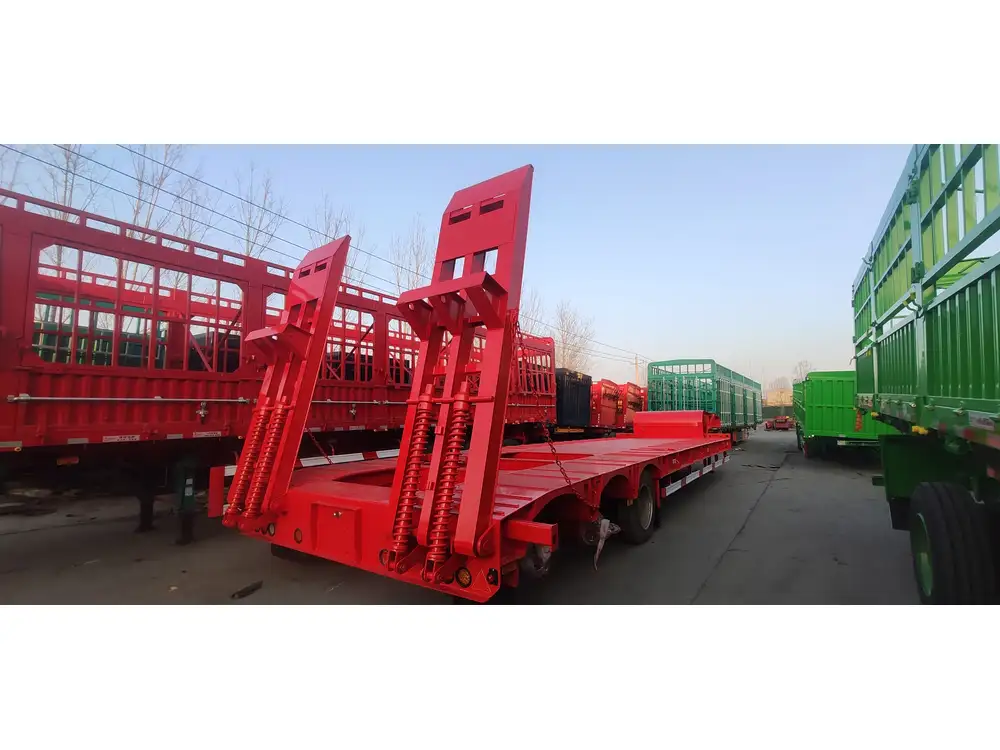
Q4: How do I choose the right 3-yard dump trailer?
Consider your towing capacity, the types of materials you’ll transport, your budget, and the specific features important to you, such as hydraulic lift quality and trailer construction materials.
Conclusion
Understanding the intricacies of a 3-yard dump trailer—its definition, applications, benefits, and maintenance—is crucial for users seeking efficiency and functionality in transportation equipment. As professionals in construction, landscaping, and agriculture, utilizing a 3-yard dump trailer can vastly improve operational productivity, support project completion, and enhance overall job performance.
Whether you are contemplating purchasing a new trailer or looking to bolster your existing fleet, recognizing the value and specificity of a 3-yard dump trailer will equip you to make informed decisions that support your projects and ensure successful outcomes.



